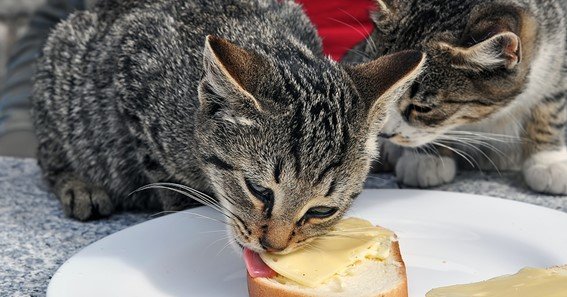If you’ve ever noticed your kitten curiously eyeing your slice of cheese, you might wonder, can kittens eat cheese? While cheese might seem like a harmless treat, especially for cats, it’s important to understand whether it’s safe for your growing kitten. Let’s dive into the facts about kittens eating cheese and the effects it can have on their health.
Can Kittens Eat Cheese?
The simple answer is that kittens should generally avoid cheese. Can kittens eat cheese safely? While they may nibble on it without immediate harm, cheese is not an ideal or recommended food for kittens. Cheese contains lactose, and many kittens become lactose intolerant after they are weaned from their mother’s milk. This means their bodies can’t digest dairy products properly, including cheese.
Is Cheese Bad for Kittens?
Yes, cheese is bad for kittens in most cases. Because many kittens have difficulty digesting lactose, eating cheese can cause digestive issues such as upset stomach, bloating, and diarrhea. While a small amount might not cause severe problems, regular feeding of cheese can lead to health concerns over time.
Kittens Eating Cheese: Effects on Their Health
Kittens eating cheese may experience immediate digestive issues due to lactose intolerance. The symptoms can range from mild discomfort to severe digestive distress, depending on the quantity of cheese consumed. In addition, cheese is high in fats and sodium, which are not part of a kitten’s natural diet and can contribute to long-term health problems such as obesity.
Lactose Intolerance in Kittens and Cheese
One of the main reasons cheese is harmful to kittens is due to lactose intolerance. As kittens grow, they lose the enzyme required to break down lactose, which is found in dairy products like cheese. This makes it difficult for them to digest cheese properly, leading to gastrointestinal issues. Therefore, it’s better to avoid offering cheese to kittens altogether.
Safe Alternatives to Cheese for Kittens
If you’re considering offering your kitten a treat, there are much safer options available than cheese. Feeding kittens cheese alternatives such as specially formulated kitten treats or wet kitten food is a much healthier choice. These alternatives are designed to provide proper nutrition without causing digestive upset.
In general, safe foods for kittens include high-quality kitten food and snacks specifically made for their nutritional needs. Always ensure that any treat you offer is suitable for a kitten’s delicate digestive system.
What Happens if Kittens Eat Cheese?
If your kitten accidentally consumes a small piece of cheese, they might experience mild digestive issues like gas or diarrhea. Can cheese cause digestive issues in kittens? Yes, especially in lactose-intolerant kittens, as their bodies struggle to process the dairy content. If your kitten shows signs of discomfort, bloating, or changes in their stool, it’s best to avoid cheese in the future and stick to safe kitten foods.
Conclusion: Can Kittens Eat Cheese?
In conclusion, can kittens eat cheese? It’s not recommended. While cheese might not be immediately dangerous in small quantities, it can lead to digestive issues due to lactose intolerance. Stick to healthier and safer options specifically designed for kittens, such as kitten treats or kitten milk replacers. Your kitten’s health and happiness depend on providing them with the right nutrition.
FAQ
- Can kittens eat cheese safely?
No, kittens should generally avoid cheese due to the risk of digestive issues from lactose intolerance. - Is cheese bad for kittens?
Yes, cheese is bad for kittens as it can cause digestive discomfort, including bloating, gas, and diarrhea. - What happens if kittens eat cheese?
If a kitten eats cheese, they may experience symptoms of lactose intolerance, such as upset stomach or diarrhea. - Can cheese cause digestive issues in kittens?
Yes, cheese can cause digestive issues in kittens due to their inability to digest lactose properly. - What are some safe foods for kittens?
Safe foods for kittens include high-quality kitten food, kitten treats, and specially formulated kitten milk replacers.
This article helps clarify the risks of kittens eating cheese and provides insight into why it’s better to choose healthier alternatives for their nutrition.










